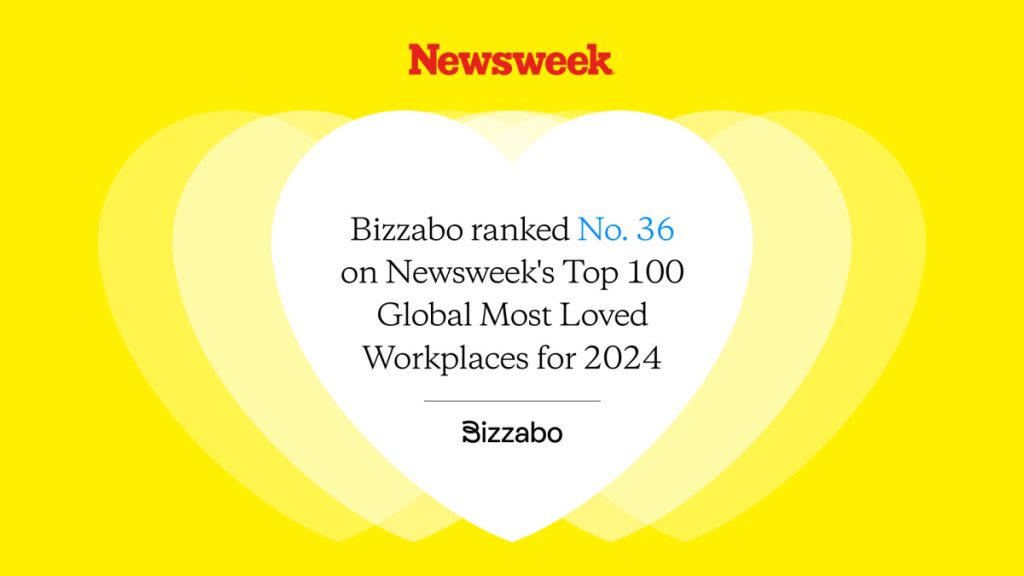What We’ve Learned About Hybrid Events and What It Means for 2022


As we close out the year, it’s time to look at the state of hybrid events, see what we learned in 2021, and figure out how to make the most of hybrid events in 2022.
In 2020, we were uncertain about the future of events. Even a few months ago, event professionals were excited about a return to in-person events in 2022. However, with the persistence of the delta variant and the shocking rise of the omicron variant, marketers now say they’re less likely to attend in-person conferences in 2022.
What does that mean for the events industry? It means that hybrid events are here to stay. But you don’t have to take our word for it.
In our recent webinar, The Rumors Are False: Hybrid Events Are Here To Stay, guest speaker Laura Ramos, VP and Principal Analyst at Forrester Research, joined Bizzabo’s VP of Global Events Devin Cleary to share research and key insights that show hybrid events are gaining momentum.
“People are still being reactive, but it’s time to seriously plan for hybrid options in 2022.”
Laura Ramos
VP and Principal Analyst, Forrester Research
The State of Hybrid Events
In August and September of 2021, Forrester surveyed B2B marketers about their event planning challenges and tips for success, as well as why they think hybrid will become the de facto format in the future. The research uncovered key benefits about hybrid events, including the following:
- Repurposing content across times and locations: High-quality content helps level up your brand and capture a wider, global audience.
- Collecting data more effectively: We can gather more information than ever before, which helps in building personalized event experiences.
- Extending an event beyond the broadcast duration: An event is no longer just a point in time; it’s a long-term marketing tool.
Ramos also revealed some fascinating statistics about the role hybrid events played in the last year, as well as some predictions for the year ahead.
- 85% of respondents completed a flagship event during the past year
- 63% of respondents plan to conduct the “same or more” virtual events during the next 12 months
- 58% of respondents agree that all flagship B2B marketing events will be hybrid in 2 years
- 76% of respondents said “increased reach and attendance” was the top benefit of virtual events
- 42% of online attendees would join online next time because it’s their best option
The webinar included dozens of valuable and insightful statistics, so be sure to watch the entire on-demand webinar to learn more.
4 Types of Hybrid Events
Because hybrid events will continue to play an important role in the events industry in 2022, choosing the right model can make all the difference. Here are four hybrid event models and what makes them unique:
- Simultaneous: This event type is what Ramos calls a “true hybrid event” because it includes live and virtual attendees experiencing the event in tandem from wherever they are.
- Live studio audience: In this model, the event features a smaller in-person audience plus a virtual audience. Think of this as a talk-show-style event.
- Delayed/on demand: Here, Ramos said, the in-person audience experiences the content live and a remote audience experiences it after the fact (i.e., on demand), in which “after” can mean anything from minutes to hours to days.
- Hub and spoke: This type of event has speakers co-located in a studio — creating TV-quality content — while the audience accesses the content remotely.
No matter which model you choose, you must make sure the hybrid format aligns with your event’s goals and what your attendees need and want. Consider the following:
- Know your options. Making any event hybrid has the potential to up your revenue, increase your reach, and engage more stakeholders. If the event is entirely virtual, is there a possibility to add an in-person component? If the event is in person, can you attract more viewers virtually?
- Prioritize your audiences. Although you won’t be able to give the two audiences identical experiences, make sure to treat in-person and remote attendees as equals and think about creating the right experience for the right audience.
- Create event experiences. The production value must be high, but the experience also needs to be engaging. Consider activities that work for both audiences, such as polls and Q&A. You must involve the audience so they don’t start multitasking on their screens or leave the session.
The Challenges of Hybrid Events
There’s still a lot to learn about throwing the right hybrid event, and many event organizers deal with similar challenges. Here are a few compelling statistics from the webinar:
- 71% of respondents said that the market lacks a clear definition of what a hybrid event is
- 60% of respondents said creating virtual experiences that aren’t just another webinar is a challenge
- 54% of respondents said predicting the mix between virtual and in-person attendance is a challenge
Luckily, with plenty of data and a couple years of experience under our belts, we can start applying knowledge to find better solutions.
Choosing Event Management Software
We all know that great tech can make or break a hybrid event. Production value is everything — whether your audience is virtual or in person. But the No. 1 technology-focused challenge, shared by 55% of survey respondents, is event tech that’s not integrated with existing marketing infrastructure.
As event professionals collect more data than ever, opportunities abound. If you can integrate that data into your customer relationship management (CRM) software, you can more easily engage with attendees before, during, and after the event. You can also deliver more personalized experiences.
But managing event data and achieving data and legal compliance can be challenging. Finding the right event management software partner can take the guesswork out of that technological headache.
Calculating Hybrid Event Pricing
As an industry, we’re still not sure about pricing structures. In the early days of the pandemic, virtual events were free because many event professionals didn’t see or understand the value of these types of events. In fact, only half of respondents are charging for hybrid events — and 19% don’t know how to create a pricing structure at all.
Continuing to offer high-quality content for free in 2022 will eventually limit flagship innovation and creativity. It’s time to ask: “How do we convey the value we deliver with our events and deliver the right price for the right experience?”
Building Meaningful Event Experiences
How do you create a hybrid experience that doesn’t just feel like another webinar? Start by asking yourself what you’re trying to accomplish overall and then dig into the type of experience you want each of your audiences to have.
“We’ve trained our audience to expect webinars to be free and to last an hour. That’s not the same model as an event, so how do we differentiate between those different experiences?”
Laura Ramos
VP and Principal Analyst, Forrester Research
Then, start building personalized journeys to ensure you’re delivering the best event experience possible.



